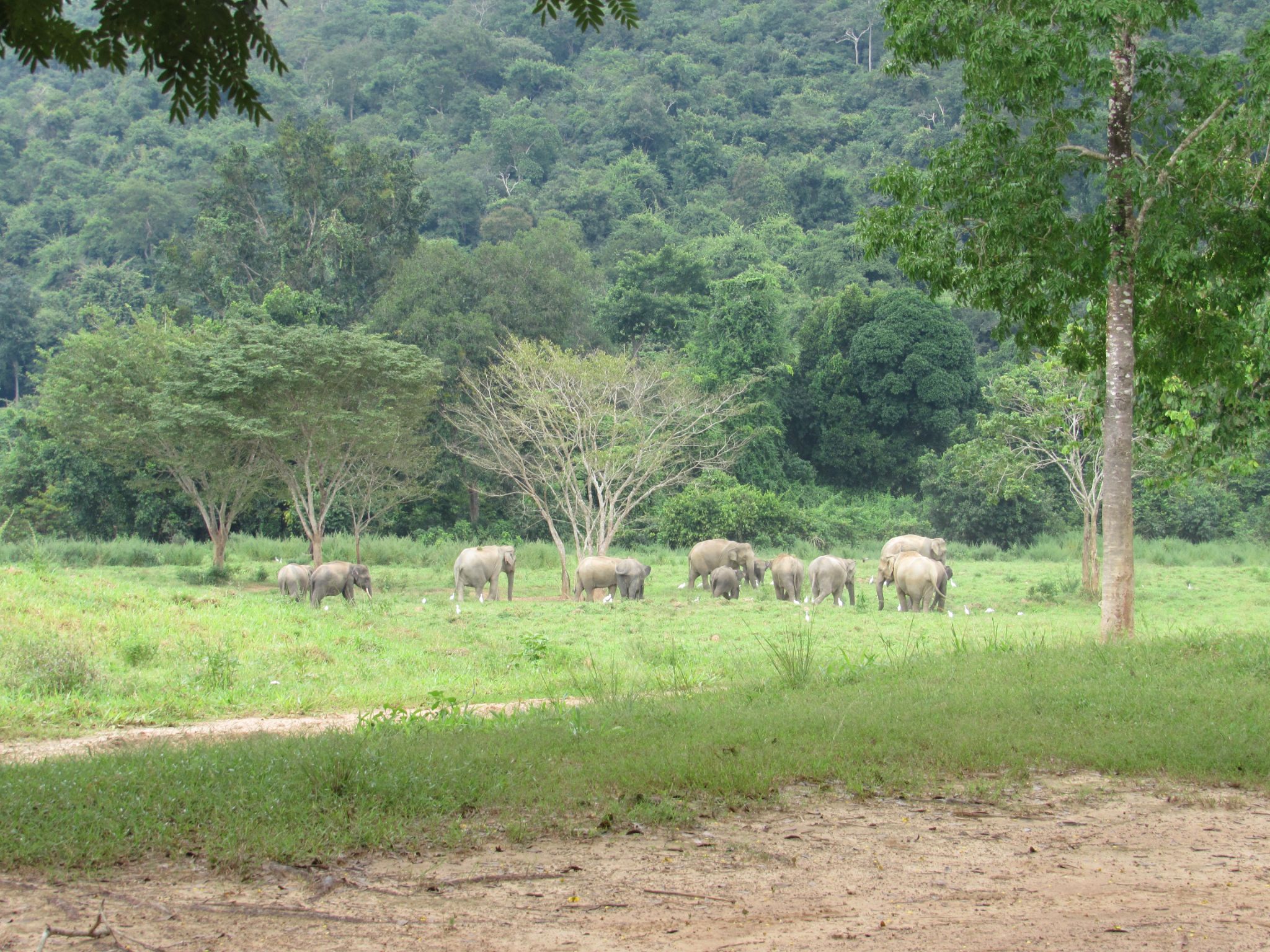Direct observational surveys of wild elephants in Thailand’s Kui Buri National Park have begun this October! Brooke Friswold is conducting her Ph.D. research with KMUTT University based in Bangkok, Thailand as well as in partnership with Bring the Elephant Home as an elephant researcher. Brooke will be entering Kui Buri National Park on a regular basis recording elephant behavior including activity budgets (what the elephants are doing: eating, resting, movement) as well as stress responses to humans.
Written by Brooke Friswold
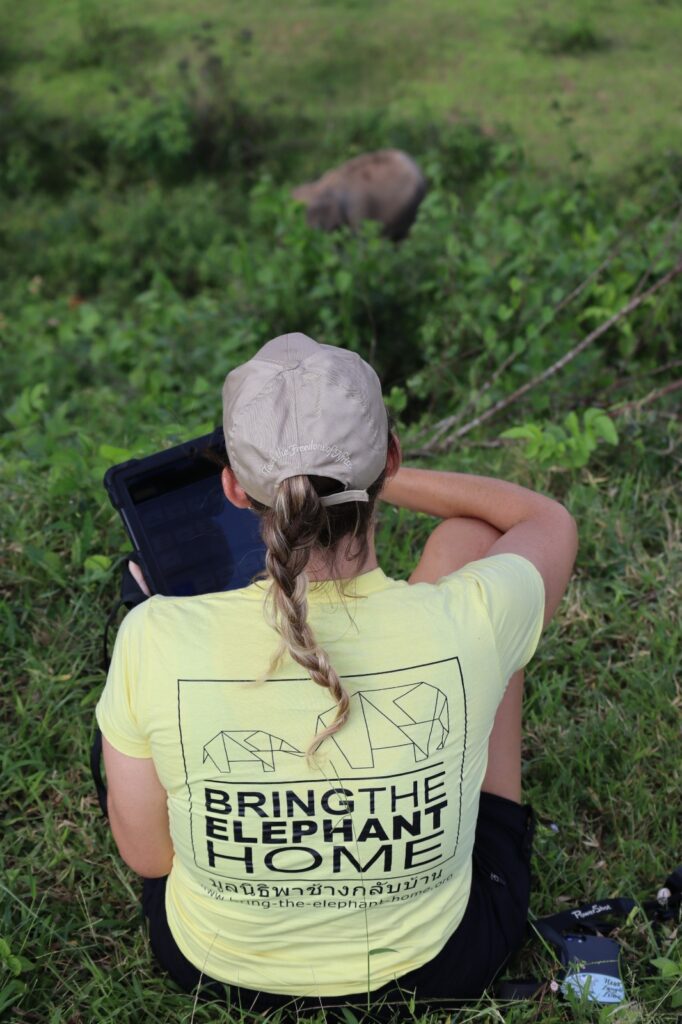
Kui Buri National Park is one of two places in Thailand where tourists can encounter wild elephants via safari style tours through the park. Kui Buri Thailand is a unique region in its relationship to elephants, where the local community accrues benefits from wild elephant eco-tourism but experiences regular elephant crop-raiding with occasional lethal outcomes. Through conversations with park officials, I learned that research on elephant behavior within the park is an area of interest to the park and local communities. This led to the development of research that uses elephant behavioral data to understand the effectiveness of wildlife management implementations that have occurred at Kui Buri National Park, such as park closures, refugia areas and habitat enhancements.
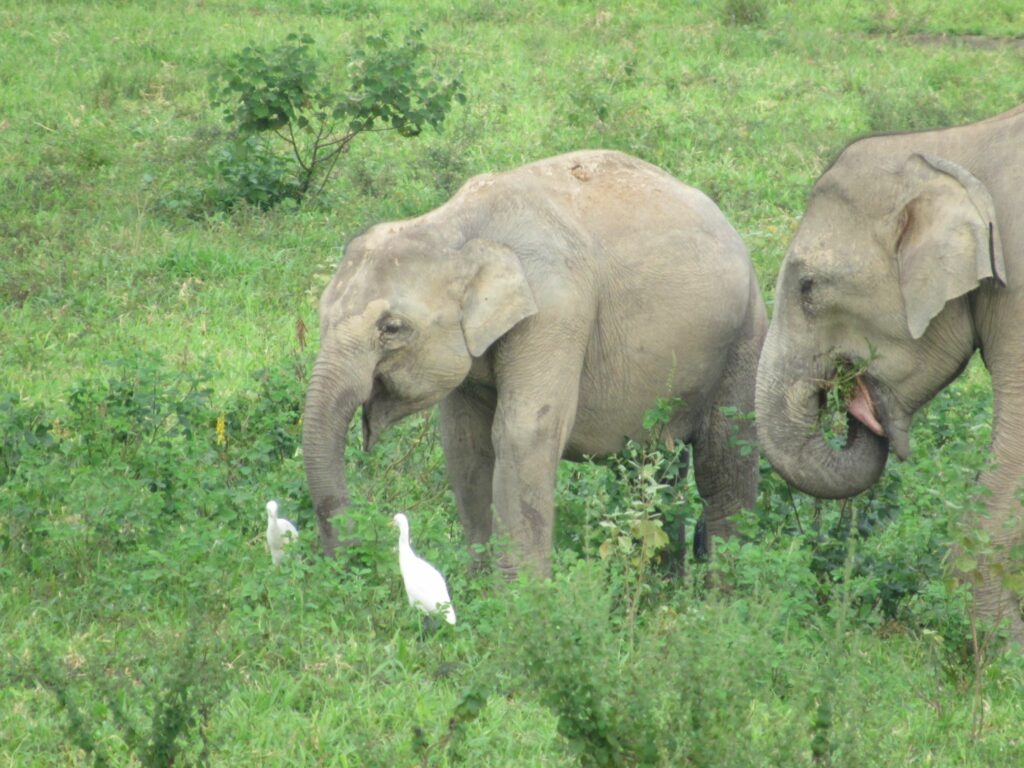
COVID-19 resulted in the implementation of a two-month closure to tourists occurring at National Parks in Thailand yearly, providing an opportunity to understand the impacts of park closures on elephant populations – which has never before been studied. Using research-based evidence, Brooke will explore the effects of park closure and re-openings, as well as the impacts of non-tourist access areas and habitat enhancement (human-made waterholes, salt licks, and grasslands) locations on elephant behavior. This research will supply critical evidence for management recommendations that support elephant welfare and populations. These observational studies will also contribute to other Bring The Elephant Home endeavors including elephant identification in the region as well as rewilding efforts.
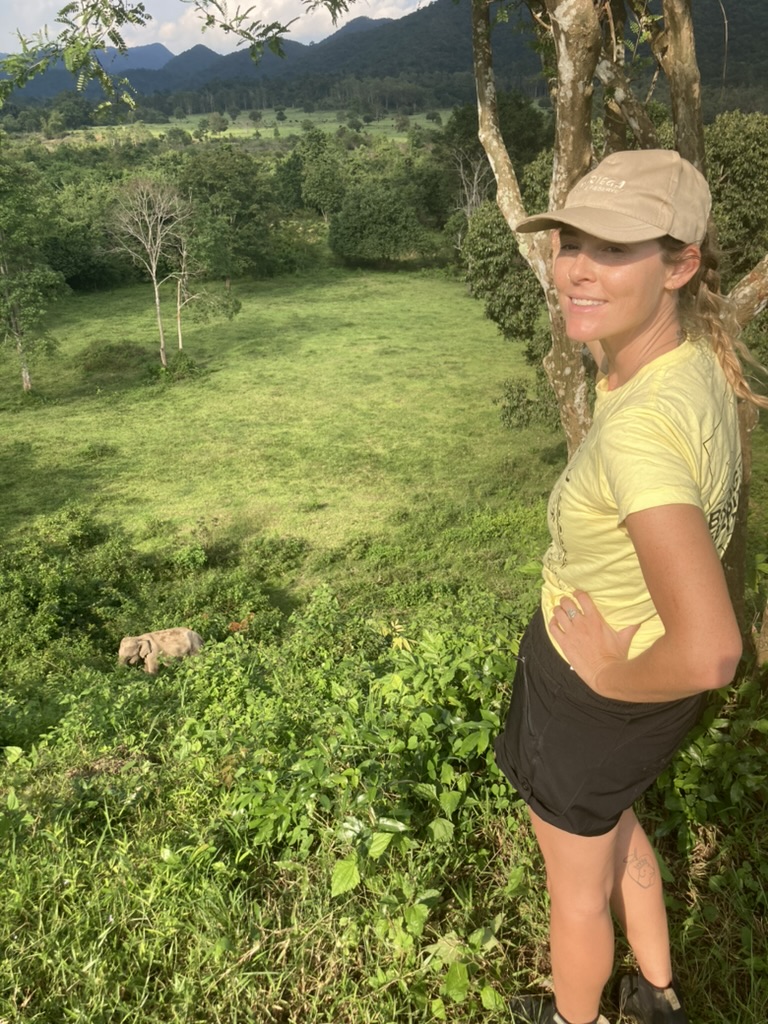
This research can assist in elephant conservation both locally and globally as well as supporting the advancement of wildlife behavioral knowledge. Locally, it will assist park officials and community members in resident elephant population understanding, potentially bettering interactions. In Thailand, only two national parks have wild elephant tourism, and recent research has shown that wild elephant viewing is the highest desired elephant tourism activity in Thailand and a shift from captive to wild elephant tourism could be beneficial in increasing elephant populations, with information on successful management operations to ensure welfare and conservation.
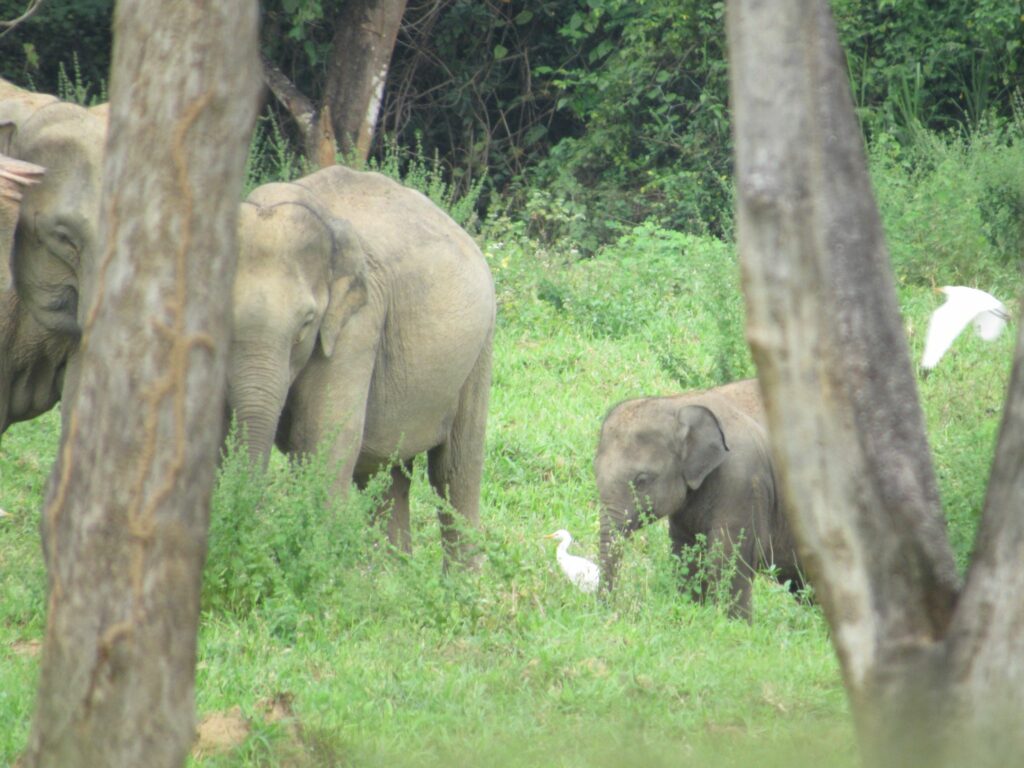
There are currently no governmental regulations concerning wild-elephant tourism in Thailand, although local rules and safety precautions do occur at parks, management interventions are often not supported by research. The findings could assist in supporting the expansion and implementation of successful management interventions or in the development of tourism regulations. It can be applied to National Parks in Thailand, or other countries containing wild elephant tourism opportunities.
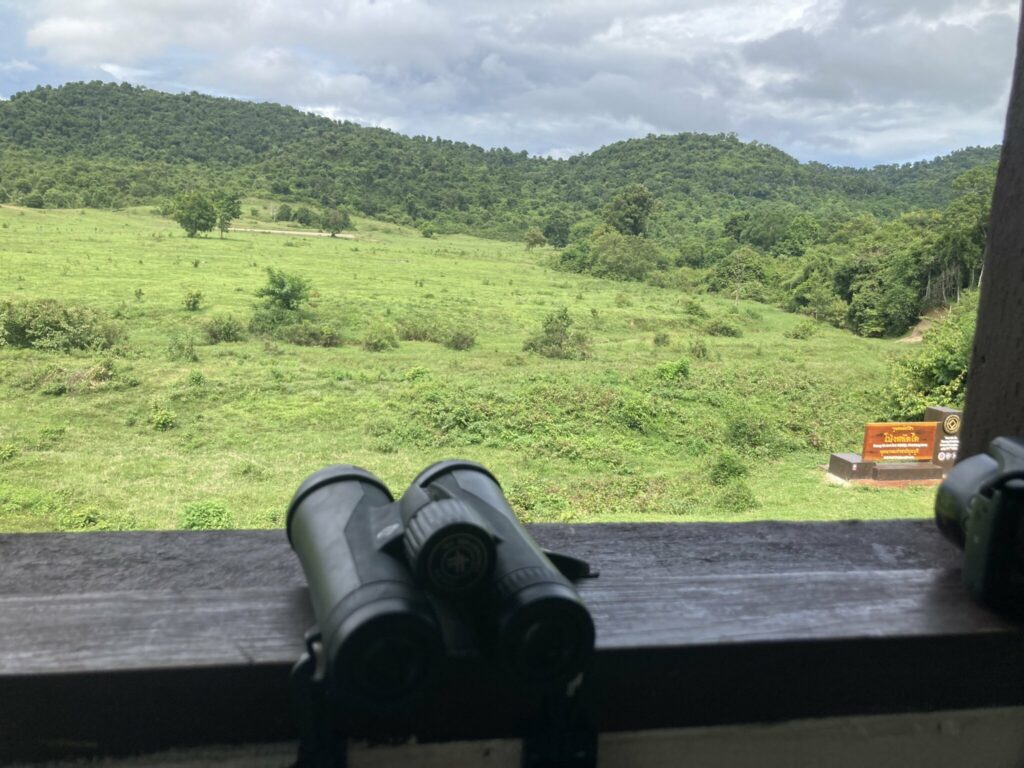
Opportunities to study the complex behavioral world of elephants will further assist in the ability for us to protect and understand them. You can continue to follow Brooke’s research @thewildlifelady on Instagram.
‹ Back to previous page